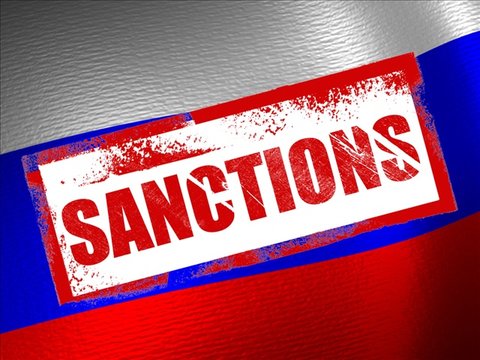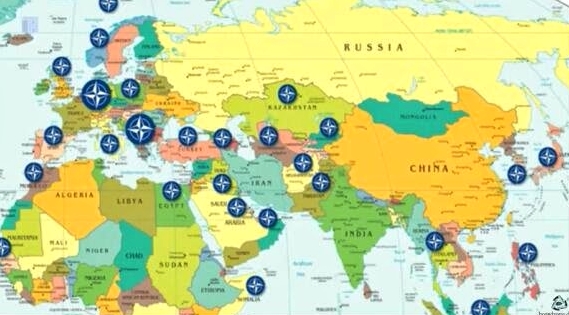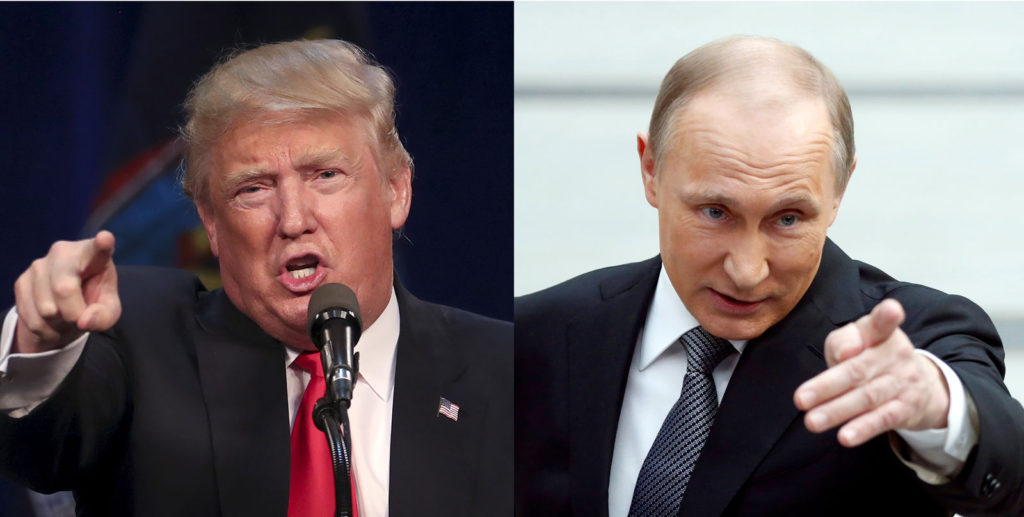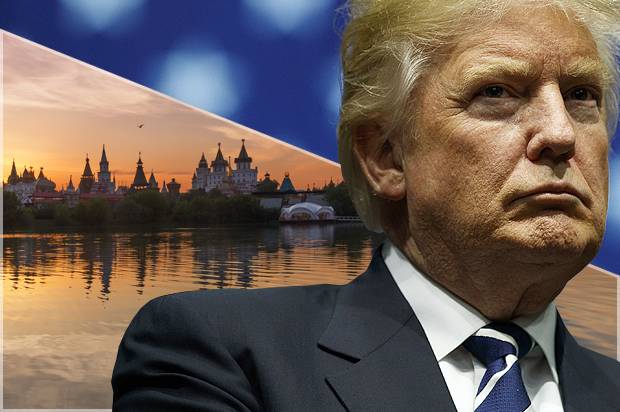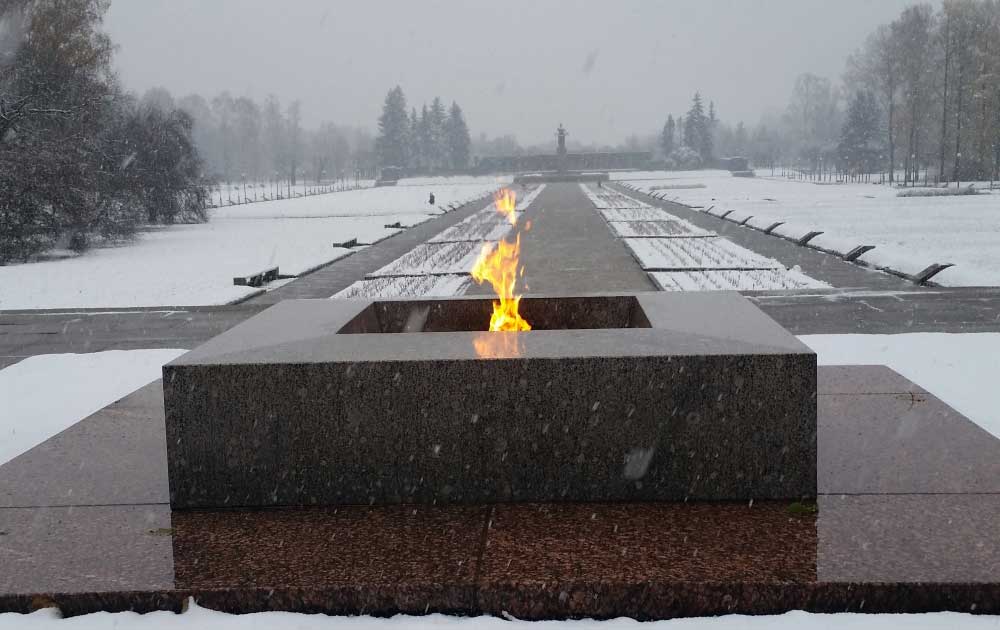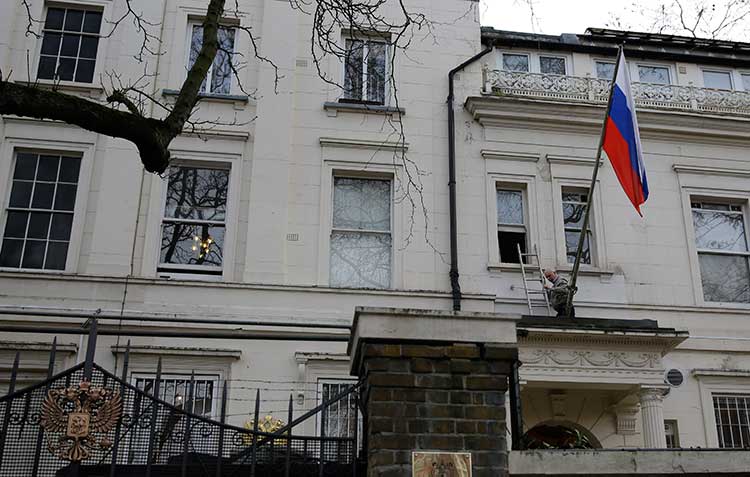
The Trump administration Thursday announced a new set of punitive sanctions against Russia, targeting 19 individuals and five organizations, including the country’s two main intelligence agencies, the Federal Security Service, or FSB, the successor to the KGB, and the GRU, the intelligence arm of Russia’s military.
Coming together with a virtually unprecedented joint statement by the heads of the US, British, German and French government indicting Russia for alleged responsibility for a nerve gas attack in the UK that has hospitalized a former Russian intelligence officer and his daughter, the sanctions represent a major ratcheting up of tensions between the world’s two major nuclear powers.
The pretexts for the latest sanctions consisted of allegations of Russian “interference” in the 2016 presidential election and claims of Moscow’s responsibility for “malicious” cyberattacks.
“The Administration is confronting and countering malign Russian cyber activity, including their attempted interference in U.S. elections, destructive cyber-attacks, and intrusions targeting critical infrastructure,” Treasury Secretary Steven Mnuchin said in a statement Thursday. He added, “These targeted sanctions are a part of a broader effort to address the ongoing nefarious attacks emanating from Russia.”
The statement accused the Russian government, without providing any substantiation, of targeting “U.S. government entities and multiple U.S. critical infrastructure sectors, including the energy, nuclear, commercial facilities, water, aviation, and critical manufacturing sectors” with cyberattacks.
The charges are ominous, given that a recently released series of US national security and nuclear posture documents have laid out a new nuclear strategy that suggest that a significant cyberattack on the United States could justify retaliation with nuclear weapons.
The case laid out by the treasury secretary largely dovetailed with last month’s indictment of many of the same individuals and organizations by special counsel Robert Mueller, whose investigation had previously been denounced by President Donald Trump as a “witch hunt.”
The Democratic Party working in close collaboration with predominant layers within the US intelligence apparatus and the major media have waged an unrelenting campaign around so-called Russian “meddling” in the US elections, combined with claims that Moscow is responsible for the social divisions and tensions wracking American society.
Underlying this campaign is opposition within the US ruling establishment to any let-up in aggression against Russia, which is viewed as a principal impediment to the US drive to militarily assert its dominance over the Middle East, Eastern Europe and the entire Eurasian landmass. At the same time, the allegations against Russia have been employed to justify internet censorship and prepare for domestic political repression.
While leading Democrats voiced support for the new sanctions, Senate Minority Leader Chuck Schumer declared Thursday that they were “not enough.” He demanded that Trump carry out more punishing measures and publicly denounce Russian President Vladimir Putin.
Similarly, the ranking Democrat on the Senate Intelligence Committee, Senator Mark Warner of Virginia, described the measures as a “first step” and said he did not understand “why it’s taken the administration so long to lay out these sanctions.” The Congress voted overwhelmingly to impose election-related sanctions nine months ago.
The statement from the Treasury Department further cited the “recent use of a military-grade nerve agent in an attempt to murder two UK citizens,” claiming that it “further demonstrates the reckless and irresponsible conduct” of the Russian government.
Trump joined British Prime Minister Theresa May, German Chancellor Angela Merkel and French President Emmanuel Macron in signing a joint declaration Thursday demanding that the Russian government “address all questions related to the attack” that allegedly employed a military-grade toxin to poison the former Russian GRU colonel Sergei Skripal, who became a double agent for British intelligence, and his daughter in the southern English city of Salisbury.
The statement described the alleged attack as “an assault on UK sovereignty” that “threatens the security of us all.”
Britain has claimed that the attack was carried out with the nerve agent Novichok, which was first developed by the military of the Soviet Union, but it has provided no evidence to substantiate its claims.
Moscow has denied any responsibility for the attack on Skripal, who was arrested for betraying dozens of Russian agents to British intelligence and sentenced to 13 years in prison in 2006, and then released in a US-Russian spy exchange and granted British citizenship.
The statement declares that it is “highly likely that Russia was responsible for the attack.” Without presenting any evidence, the British government retaliated against Moscow with the expulsion of 23 Russian diplomats. Moscow has vowed to respond in kind.
The Russian government has repeatedly asked London to supply a sample of the nerve agent that it claims was used in the attack on Skripal—as is required under the rules of the Organization for the Prohibition of Chemical Weapons—but the May government has ignored the requests.
Russia’s President Putin gave his first public response to the charges by the May government Thursday saying that he was “extremely concerned” about the “destructive and provocative stance taken by the British side.”
Earlier, Kremlin spokesman Dmitry Peskov told reporters, “Russia perceives the position taken up by UK authorities with great bewilderment and incomprehension… The accusations are groundless. Moreover, these accusations were voiced before any information about the substance used emerged, which shows the presence of all signs of a provocation against Russia.”
Britain’s defense minister summed up the tenor of the charges made by the May government, declaring Thursday that Russia should “go away and shut up.” He made the statement after delivering a keynote speech calling for a major increase in UK arms spending to prepare for military confrontation with Russia.
British warplanes, he told his audience, are “policing eastern European skies against a resurgent danger from Russia” and “our soldiers stand sentinel with our NATO allies in Estonia and Poland to deter this threat.”
NATO Secretary General Jens Stoltenberg Thursday declared the Western military alliance’s “solidarity” with London, while claiming that the alleged chemical weapons attack was part of “a reckless pattern of Russian behavior over many years.” He added, however, that London had not requested activation of Article 5 of the NATO treaty, which requires all NATO members to come to the aid of a member state that claims it has been attacked, including through the use of armed force.
Nonetheless, the May government and its principal allies in Washington are clearly making the case for war with Russia.
The joint statement issued by Britain, the US, Germany and France commits the four powers to no specific actions against Russia. Both Germany and France have chafed at previous sanctions imposed by the United States against Moscow, viewing them as a deliberate threat to their economic ties with Russia aimed at boosting US interests in Europe, particularly in terms of American energy conglomerates.
The European powers are likewise hostile to the Trump administration’s apparent intention to upend the 2015 nuclear agreement with Iran, with which they have sought to negotiate profitable trade and investment deals.
Just a day before Macron signed the joint declaration, his spokesman indicated to a news conference that Paris was not prepared to jump onto the UK’s anti-Russian bandwagon over unsubstantiated charges. “We don’t do fantasy politics,” he said. “Once the elements are proven then the time will come for decisions to be made.”
Clearly, immense pressures are being exerted for the adoption of a more belligerent policy toward Russia. In part this is driven by the debacle confronting the seven-year-old US-orchestrated war for regime change in Syria, where the Assad government, with Russian backing, is on the verge of overrunning one of the last major strongholds of the Western-backed Islamist “rebels” in the rural Damascus suburb of eastern Ghouta.
In an opinion piece published by the Washington Post Thursday, British Foreign Minister Boris Johnson sought to directly link the alleged Russian role in the Skripal affair with events in Syria, arguing that there was a direct “connection between Putin’s indulgence of Assad’s atrocities in Syria and the Russian state’s evident willingness to employ a chemical weapon on British soil.”
Johnson’s column follows the threat earlier this week by US Ambassador to the United Nations Nikki Haley that the US is prepared to launch unilateral military action against the Assad government in Syria over alleged chemical weapons attacks in Ghouta, and a response from General Valery Gerasimov, the chief of the general staff of the Russian Armed Forces, that any US attack that threatened the lives of Russian military personnel in Syria would be answered by Russian retaliation.
Originally published in WSWS.org

